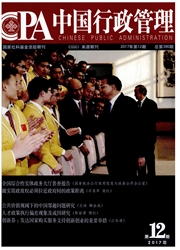

 中文摘要:
中文摘要:
流动人口城市公共产权的缺失是导致目前诸多社会问题的根源,其核心是城市公共产品与相关资源的稀缺与分配的不均等。通过合理的城市公共产权制度变迁,降低排他性,使流动人口充分享有城市就业权、基本公共教育权、社会保障权、适足住房权等,分享公共收益,才能最终实现各个参与主体的共同获益。与此同时,增加城市公共产品的供给是降低稀缺性的重要方式,而在这一过程中,户籍制度和相应的成本分担机制制约着供给的意愿和供给的能力。解决以上问题,才能逐步推进中国的城镇化走向健康、可持续的未来。
 英文摘要:
英文摘要:
The governance path for urban public property loss of the floating population is the root cause of many social problems at present, and its core is the urban public goods and the related resources scarcity and unequal distribution. Only through the rational institutional change of urban public property rights, reducing the exclusion, making the full enjoyment of the rights to urban employment, basic public education, social security, and adequate housing for floating population, and sharing the public benefits, can We eventually realize the mutual benefit of each participation party. At the same time, an important way to reduce the scarcity is to increase the supply of public goods, while the household registration system and its cost sharing restrict the willingness and ability of supply in this process. After solving the above problems, China will gradually promote its urbanization towards a healthy and sustainable future.
 同期刊论文项目
同期刊论文项目
 同项目期刊论文
同项目期刊论文
 期刊信息
期刊信息
